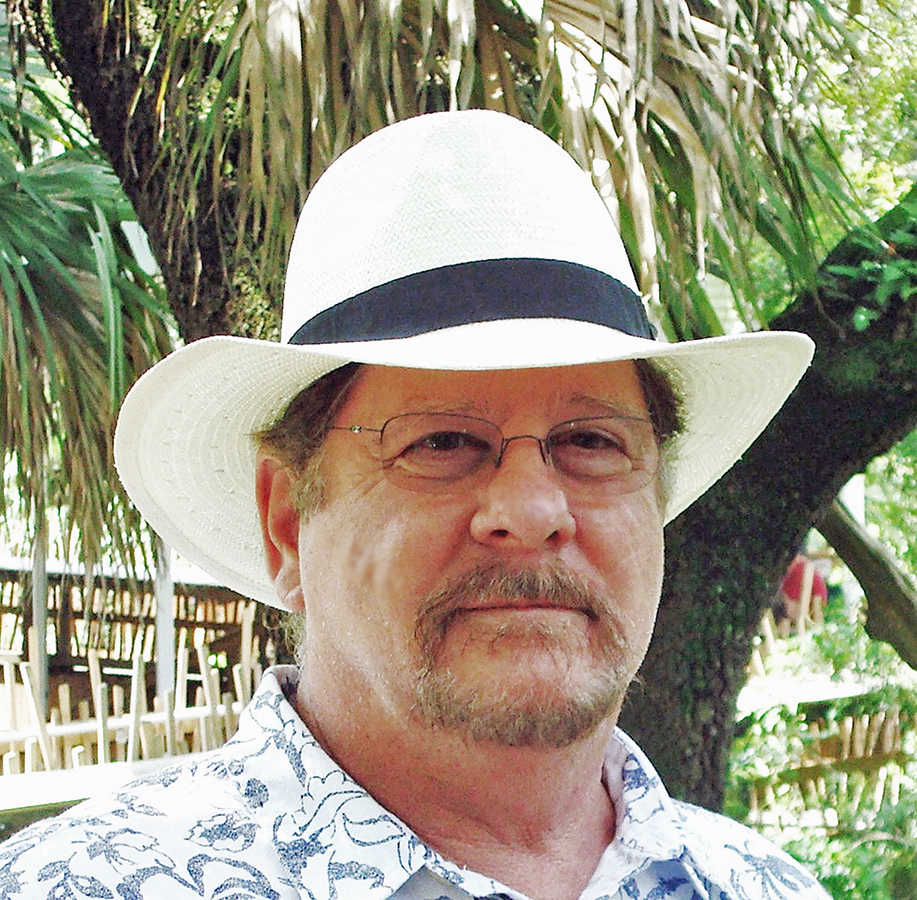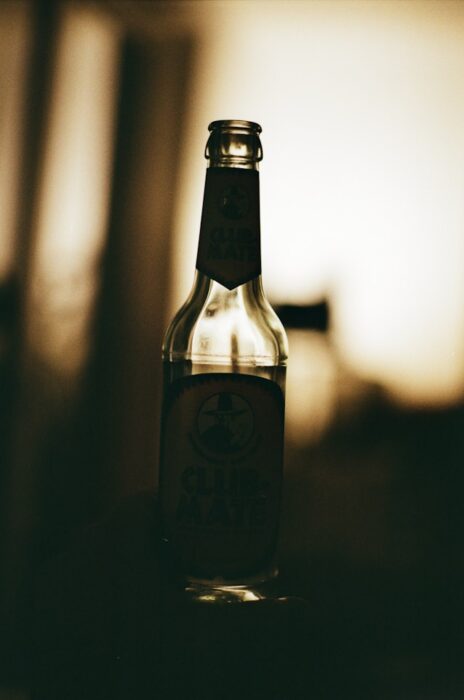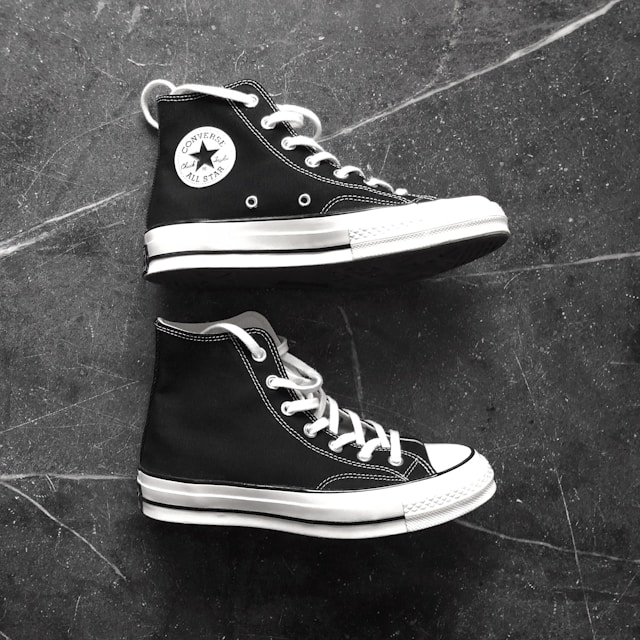The Last Time I Held Bobby in My Arms
A year after I left the military, I was hired by a Fortune 100 company as a Customer Sales Representative. The desk I was assigned was next to one occupied by a man named Bobby. As fate would have it, we would sit next to one another for five years.
When you sit beside a coworker for any length of time, you either become friends, friends from work, or simply tolerate one another. Bobby was the former. He was a gentle soul who was quick to laugh and the first to offer his help when you needed it.
In addition, when you sit beside someone eight hours a day, five days a week, you also learn much about that person, at least I did. In time, we became more than friends. I learned to love Bobby like a brother. Ours was a platonic relationship, although we did hug upon occasion, slapping one another on the back to avert office gossip.
Although Bobby was younger than me, he looked a lot older. On my first day, he told me he was an alcoholic who had joined Alcoholics Anonymous (AA) two years before I’d met him.
I remember asking, “You mean ex-alcoholic, don’t you?”
“There is no such thing as an ex-alcoholic,” he replied. “It only takes one drink to make you return to being a BOLO (Boozer Loser.)” That’s what Bobby called his former drinking buddies. BOLO’s who still got drunk every day.
I told him my father was a bartender and single parent, so I grew up in a bar and knew all about alcoholics.
“I don’t drink at all,” I said. Then I asked Bobby if he was a happy or nasty drunk.
Bobby said that he was a happy drunk.
“I was so busy being happy that I missed out on my kids growing up,” he said sadly.
As our friendship blossomed, we became almost inseparable at work. The women in the office used to tease us.
“Here comes the AA team (Antaeus and the Alcoholic),” they’d say.
Some of the guys in the office were nasty and tried to infer we were more than just friends by calling us a-hole buddies. Their taunts didn’t bother us at all.
#
Although I didn’t ask, my friend told me there were twelve steps to the AA program. Then, he bragged that he was on step eight, “Making a list of all the people he had harmed,” and he was willing to make amends to them all.
A few weeks after we met, Bobby told me he’d been separated from his wife, Sarah, and his two boys for two years.
“But only until I get my act together,” he would insist. “The thought of getting back together with my family is what keeps me sober.”
Those first few weeks were my introduction to what AA was all about. I learned a lot more as the years went by. For instance, when Bobby reached step nine (Make direct amends to people you have harmed wherever possible), he signed over his house, car, and half his 401K retirement account to his estranged wife.
Against his lawyer’s advice and mine, Bobby made Sarah his life insurance beneficiary and joint holder of his new 401K and bank account. Something that would come back to hurt him later. When I asked him why he had done that, he said it was his way of making amends for all the money he had spent on alcohol.
#
Bobby had moved out of his house at his wife’s insistence two years before I’d met him. His parents were dead, and he was an only child with no relatives. So, my friend lived alone in a tiny mobile home surrounded by two busy intrastate highways. The trailer was rusted out in spots, had no tires, and sat on concrete blocks.
Bobby’s home measured twelve feet long by six feet wide on the outside. Although he was only separated from his wife, whose job paid almost twice what he earned, Bobby sent home most of his weekly paycheck. Not because he had to, but because, as he said, “It’s the right thing to do.”
The man lived on $800 per month. The rent on that one-room shack of a trailer was $600 monthly, leaving Bobby with $200 monthly for food, gas, clothes, and utilities.
My friend’s two sons, ages sixteen and eighteen, would visit him at the trailer on weekends and holidays. He played baseball with his younger son and was taking a night school class on computer programing together with his elder son.
As the years went by, I watched Bobby grow into a different man than the one I had first met. Bobby was so excited about the prospect of moving back in with his family that he set out to obtain a pilot’s license. He said it would prove to his family and himself that he could remain sober and achieve a goal.
We didn’t know it then, and Bobby’s kids never told him, but his wife, Sarah, had hooked up with someone else. The man was living with her, and she had no intentions of ever taking Bobby back. Her boyfriend made even more money than she did, but Sarah took Bobby’s money every week anyway.
My friend studied hard for two-plus years to accomplish his goal. But unfortunately, flight lessons aren’t cheap, so he worked a second evening job to help pay for them.
When Bobby received his pilot’s license, I purchased a twelve-inch chocolate cream pie, my friend’s favorite dessert. I hugged him and told him I was proud of his achievements. Then, we celebrated by eating the entire pie for lunch in the breakroom.
I’ll never forget the look in Bobby’s eyes or that triumphant smile on his chocolate-smeared face as he downed the last crumb. I knew he had worked hard for that license, and my heart went out to him that day.
As fate would have it, that would be our final celebration together.
Bobby was diagnosed with inoperable cancer three months after receiving his six-year sobriety coin. The doctors gave him between five and seven months to live. They said it was all those years of drinking that caused it.
I will remember the day my friend told me about the diagnosis until the day I die. We were walking through a strip mall parking lot during lunch hour when he told me. I hugged him in support and told him we would fight it together. Bobby began crying on my shoulder. Amidst the tears, he told me he didn’t want to die.
“Not now,’ he said. “I’m so close to getting everything back.”
I didn’t know what to say to Bobby, so I held him in my arms, and we cried together. People walking by were non-sympathetic, yelling for us to “Get a room.” or calling us derogatory names. I didn’t care, and neither did Bobby. We both needed a hug.
Therein lies a life lesson for all of us. Life, like beauty, is in the eye of the beholder. Sometimes, what you see isn’t what you perceive it to be—two people of the same sex can hug each other without being sexually involved. It’s called friendship, caring, camaraderie and many different names, like compassion.
Two weeks after the diagnosis, his wife, Serah, filed for divorce. She demanded child support and alimony in the amount he had already been sending. She had it automatically deducted from his paycheck by the court. Then, she sold the house and his car from under him a week later. Bobby could not get to work without his vehicle unless he took two buses.
Then, his wife cashed out his IRA, checking, retirement, and savings accounts. Finally, the woman sold everything else she could, which included the computer he and his son had built together. Bobby didn’t fight the divorce and lived out the last days of his life alone in that small one-room, rusted-out house trailer.
To add insult to injury, his medical insurance company dropped him. They claimed the cancer was a pre-existing condition caused by his alcoholism. There was no “Go Fund Me” in those days, and fortunately, our company kept my friend on the payroll. Bobby was also a Veteran, so he received his in-home hospice medical treatment through the VA.
After the divorce, although he was granted visitation rights, Bobby’s sons never visited him. When I begged them to go to see their father, their excuse was that they couldn’t stand to see him suffering. Even his “friends” from work, people he had worked with for thirty years, never came to visit. The poor man was abandoned by almost everyone. Bobby often said he didn’t care about losing his so-called friends. What had hurt him the most was that his children had abandoned him.
After he couldn’t work any longer, I visited Bobby every day at lunchtime. I felt that no one should go through what he was experiencing alone. Sadly, although I offered to drive, none of the other office employees were interested in visiting Bobby.
I talked with my wife about Bobby and said I wanted to visit him whenever possible. I told her the trailer park is a one-hour round-trip drive from our office, and I would have to take an extended lunch hour. That would mean a pay cut. My wife told me to do whatever I thought was the right thing to do. “You can’t put a price on compassion or friendship,” she said.
The next day, I asked my manager for an additional unpaid hour for lunch so I could visit Bobby, and he said, “Okay.” So, I’d leave the office every weekday at noon and see Bobby in his trailer. On some weekends, I would make an extended visit.
Before the morphine injections started, Bobby’s mind was as sharp as a tack. We would talk about various subjects during our time together but never about professional sports. We both hated professional sports. Bobby would say, “Antaeus, all those millionaires getting paid all that money to play a game isn’t right. That money should go to the people in America who go to bed hungry every day.”
I agreed.
Mostly, my friend would talk about what he felt were his failures in life. The poor man was worried that his life had been wasted and he hadn’t accomplished anything. What Bobby regretted most was the time he had spent drinking. He said it was time he could have been spending with his family and didn’t. During those times, I did the only thing I could do. I gave encouragement and listened when it was time to listen.
One day Bobby asked me why none of the other people from work ever came with me to visit him. I told him our manager wouldn’t give them the time off. He just looked at me sideways. He knew I was lying, and he never asked me again.
In my defense, I did ask at the office daily if anyone wanted to go with me. No one would, and I understood why. For most people, being with someone who is dying forces them to face their own mortality. I lied to my friend to keep a dying man’s feelings from being hurt, and Bobby saw right through it.
Fortunately, or unfortunately for Bobby, when the morphine injections kicked in, he was too out of it to feel any emotional or physical pain. He even stopped lamenting about his life and his lack of friends or family, which, at the time, I presumed was a good thing.
As his condition worsened, Bobby got this idea in his head that if he could walk from one end of the trailer park to the other, he wouldn’t die that day. So, to reinforce his positive thinking, I promised to walk a mile and a half around the trailer park with him each day, rain or shine. His neighbor, Marleen, a divorced woman around Bobby’s age, would walk with us. She also took care of Bobby’s needs when I was not there. There is a special place in heaven for that woman. She put her own needs aside to help someone she barely knew. Sadly, that is something that is missing in America today.
There came a time when Bobby was so weak and high on morphine that he spoke incoherently and had difficulty walking. During that difficult time, I would talk to him and support him as we walked around the trailer park. Then, finally, when the shell of a man could no longer walk, I carried him on my back.
Bobby wasn’t heavy—cancer and morphine had left him a toothless skeleton at around ninety pounds. I was a bodybuilder then, so carrying ninety pounds was nothing to someone who could do squats with 300 pounds on his back. His neighbor and volunteer caregiver, Marleen, would walk with us. She would clean the drool from Bobby’s mouth before it dripped onto my dress shirt.
Toward the end, Bobby was injected with so much morphine I doubt he knew where or even who he was. At that point, my friend weighed so little that I could cradle him in my arms. However, in case some part of him was still there, I kept my promise and carried him in my arms, like a baby, through the trailer park.
That was the most challenging part for me. To look down into Bobby’s half-closed eyes and slack-jawed face and know that the end was near for him. My emotions were sea-sawing between being happy that his suffering was almost over and the guilt I felt for being happy. By the time we’d return to the trailer, Bobby would be wet with my tears.
The last time I held Bobby in my arms was on the day he died. It was almost ten months to the day after his diagnosis. Only three people were with him when he passed, the hospice worker, Marleen, and me. I kissed Bobby on the cheek and told him I loved him as I held his hand, and he exhaled his last breath.
I’ll never forget the clarity that came into Bobby’s eyes when I said those words. Nor will I forget the smile on his face when he looked at me and then through me as his eyes clouded over. Then Bobby moved on to a better place. Marleen and I cried for hours together.
Epilog
Bobby’s ex took the insurance money and refused to pay his funeral expenses. Then, Serah and her boyfriend used it to go on vacation. Since no one could pay Bobby’s funeral expenses, I took up a company-wide collection. His ex-wife and sons never showed up.
Marleen moved on with her life, and we kept in touch for a while. But, since the only thing we had in common was Bobby, we lost touch after she met someone and married. As for Bobby’s ex-wife, the fella she was living with eventually swindled her out of every penny she had. I call that Karmic justice. As for me, I sat beside Bobby’s empty desk for a few months longer. I would swear that I could smell his aftershave every once in a while. Finally, when I could no longer stand the sadness, I asked for and was given a transfer to another office.
At Bobby’s funeral, I was given a copy of something Jamie Anderson, the author of “Doctor Who,” said. It’s what I felt in the days after Bobby’s death.
“Grief, I’ve learned, is really just love, he wrote. It’s all the love you want to give but cannot. All that unspent love gathers up in the corners of your eyes, the lump in your throat, and in that hollow part of your chest. Grief is just love with no place to go.”

Antaeus is an award-winning author of “The Prepared Citizen,” a situational awareness series. Raised in an inner city, Antaeus began working at age seven. He wrote his first poem at nine while cleaning toilets in a bar. Antaeus was a high school dropout at thirteen, working full-time to help support his family. At seventeen, he joined the Navy, where he finished his education. As a civilian, Antaeus spent most of his life working his butt off at a job he hated. Now comfortably retired, Antaeus volunteers his time and writes from a lakefront home in Southwest Florida for fun.



